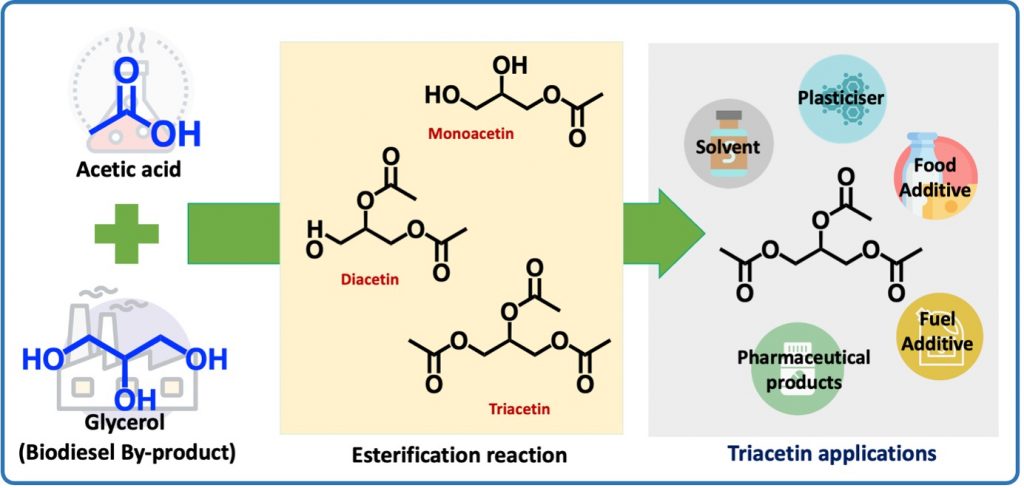
Researchers from Queen’s University Belfast and members of the UK Catalysis Hub have published a perspective article on the application of nanostructured solid/liquid acid catalysts for upgrading glycerol to glycerol esters. In the present scenario of increasing energy demand and current climate emergency, biorefinery concept has great potential to contribute towards low carbon clean energy for liquid transportation fuels suitable for use in heavy engines such as farm machinery, trucks, and marine shipping sector. However, a major problem associated with biodiesel production is glycerol by-product, which is a liability for biorefinery industry. This perspective article explores the challenges and opportunities in upgrading glycerol to glycerol esters, high energy density biofuel additives. Thus, converting liability into assets by converting glycerol into drop in fuel additives for blending back into the biofuels pool reinforcing the principles of circular economy. The homogeneous catalysts reviewed include mineral acids and Brønsted acidic ionic liquids. The heterogeneous catalysts include solid acid catalysts such as metal oxides, ion-exchange resins, zeolites, and supported heteropoly acid-based catalysts. The techno-economic analysis has shown the process to be highly profitable, confirming the viability of glycerol esterification as a potential tool for economic value addition to the biorefinery industry. Read the article at https://doi.org/10.3390/nano14070615




